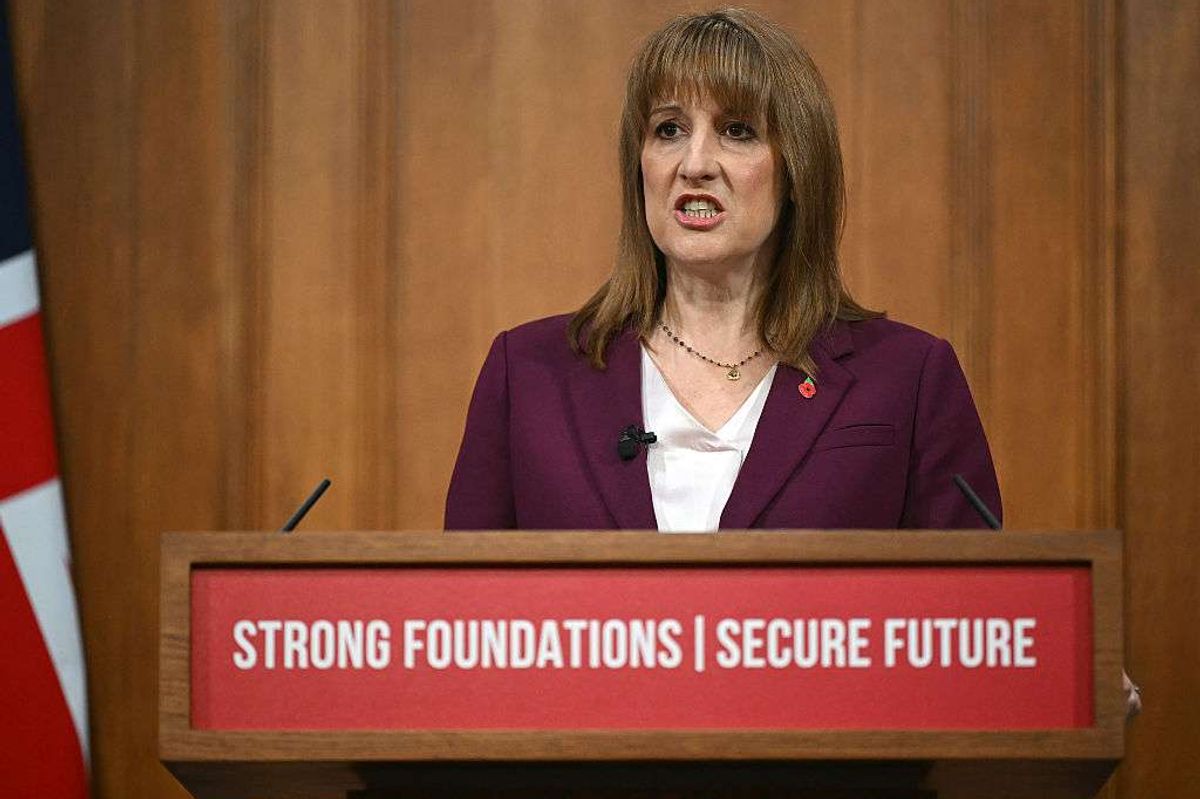Chancellor Rachel Reeves paved the way for broad tax rises to avoid a return to "austerity" on Tuesday, framing her second annual budget as one of "hard choices" to protect public spending while reducing Britain's debt.
In an unusual speech for a finance minister to make just three weeks before delivering the budget, Reeves set out the difficult economic backdrop she was wrestling with, pointing to high debt levels, low productivity and stubborn inflation.
This meant, she said, the government would most likely have to take "hard choices" in the budget on 26 November, ones which would force "all here to contribute" to secure jobs, and the future of the health and education sectors which she described as the nation's priorities.
Easy answers are 'irresponsible'
"As I take my decisions on both tax and spend, I will do what is necessary to protect families from high inflation and interest rates ... to protect our public services from a return to austerity," she told a news conference.
"I understand the urge for easy answers. Politicians of recent years have become addicted to shelling out for short- term sticking plaster solutions, rather than making long-term economic plans. They were irresponsible then, and those who continue to push for easy answers, they're irresponsible now."
Her words, which firmly put the blame for the state of the economy on previous Conservative administrations, suggested the Labour government could break the party's election manifesto not to raise key taxes - income tax, VAT or National Insurance.
The Resolution Foundation think tank - whose former head Torsten Bell is now a minister advising Reeves - predicts she will need to increase taxes by £26 billion.
Reeves declined to directly answer questions on whether she was readying Britain for tax rises, saying she would set out policies in the budget later this month.
She said the Labour government had fixed the economic foundations in a first tax-raising budget last year but that the economic backdrop had deteriorated since then.
Increasing the fiscal buffer
Reeves also again indicated she would like to increase the fiscal buffer she has against meeting her fiscal targets.
Economists believe Reeves, who raised taxes by £40 billion at her first budget, has lost all of the £9.9 billion she gave herself against meeting her target of bringing day-to-day spending into balance with tax revenue by 2029.
Tax rises would be needed to rebuild that buffer. Reeves, however, said if she got her decisions right, she would build "more resilient public finances with the headroom to withstand global turbulence, giving business the confidence to invest and leaving government freer to act when the situation calls for it".
While she would not copy a former Conservative government by bringing in "austerity" by cutting public services, Reeves said she wanted to reduce government debt with Britain now facing the highest borrowing costs of any G7 country.
And she would stick by her fiscal rules, saying that the markets could make borrowing even more expensive if they were broken.
Saying that some people had suggested Reeves should sidestep those rules and borrow more without consequence, she noted that Britain was constrained by the basic fact that government debt was sold on financial markets.
Henry Cook, senior Europe economist at MUFG in London, said the markets would view the speech as making "the right noises".
"She says the decisions will be focused on keeping inflation falling - the conditions for interest rate cuts - and says there's an iron-clad commitment to the fiscal rules, but I think the devil will be in the detail," he said.
"It is also notable she said the government will be committed to reforming the welfare state."
(Reuters)


